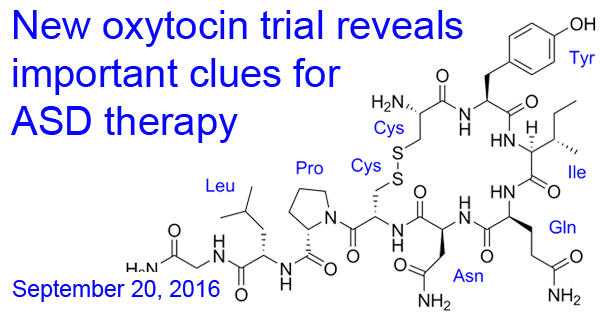Check out other stories from the Latest News
Dosage and DNA Matter for Oxytocin to Work for ASD
By Shana R. Spindler, PhD on September 21, 2016

Background: Oxytocin is a small hormone that regulates diverse physiological responses and social behaviors in mammals, including humans. The brain’s neurons recognize the hormone and start a chain of events that lead to emotion recognition and feelings of attachment. This in turn influences social bonding and related behaviors. Because of its powerful effect on the social brain, several studies have tested oxytocin as a treatment for the core symptoms of Autism Spectrum Disorder (ASD), with some success so far.
What’s new: A clinical trial examined two important aspects of oxytocin treatment:
- Dosage levels
- Genetic variations in the oxytocin receptor.
In a randomized clinical trial, researchers gave high- or low-dose oxytocin nose spray, or a placebo, to 20 young adults with ASD per group for 12 weeks. The high-dose oxytocin significantly helped social symptoms in males, but not females. The researchers found that high-dose oxytocin helped males focus on social regions of the face, such as the eyes, and on biological motions. Low-dose helped only those who had a specific DNA variation in the oxytocin receptor gene.
Why it’s important: Researchers can use the results from this clinical trial to help design future trials of oxytocin therapy for ASD. Dosage amounts and a person’s genetic background appear to be important factors to consider during future studies.
Help me understand :
| Source(s) : |
| Tweet |

